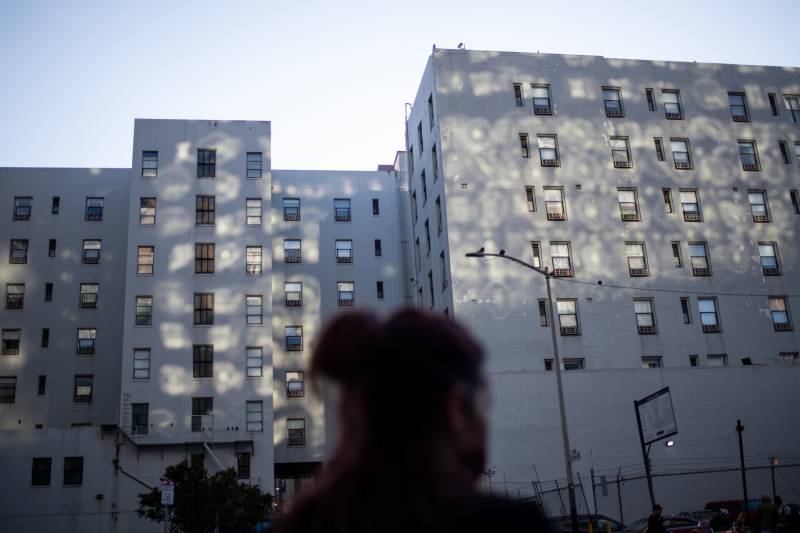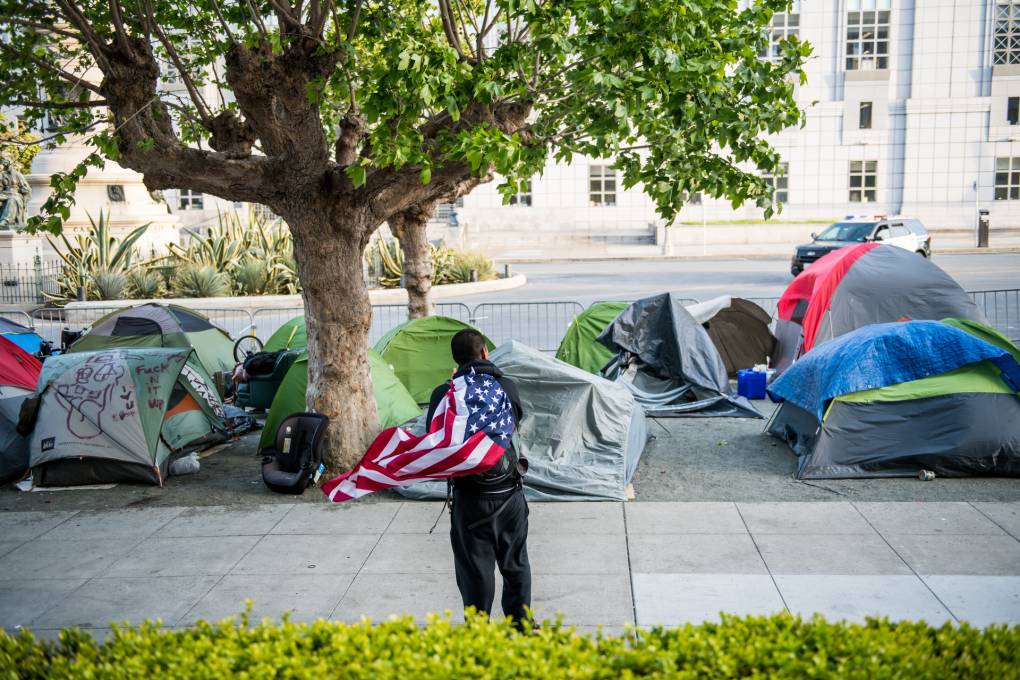San Francisco could pay up to $19.5 million to settle a lawsuit over property damages at one of the hotels that provided emergency housing during the pandemic.
The owners of Hotel Whitcomb on Market Street filed the complaint against San Francisco on April 13 of this year. They allege the historic hotel endured millions in property damage resulting in loss of use by the city’s shelter-in-place hotel program, part of a statewide effort called Project Roomkey that opened up empty hotels during the pandemic to create emergency shelters.
The settlement is the latest agreement between the city and owners of the hotels that stepped up during the COVID-19 pandemic to provide emergency housing for people experiencing homelessness during the first two years of the pandemic. That has included $2.9 million to the Tilden Hotel and $5.3 million to Hotel Union Square.

